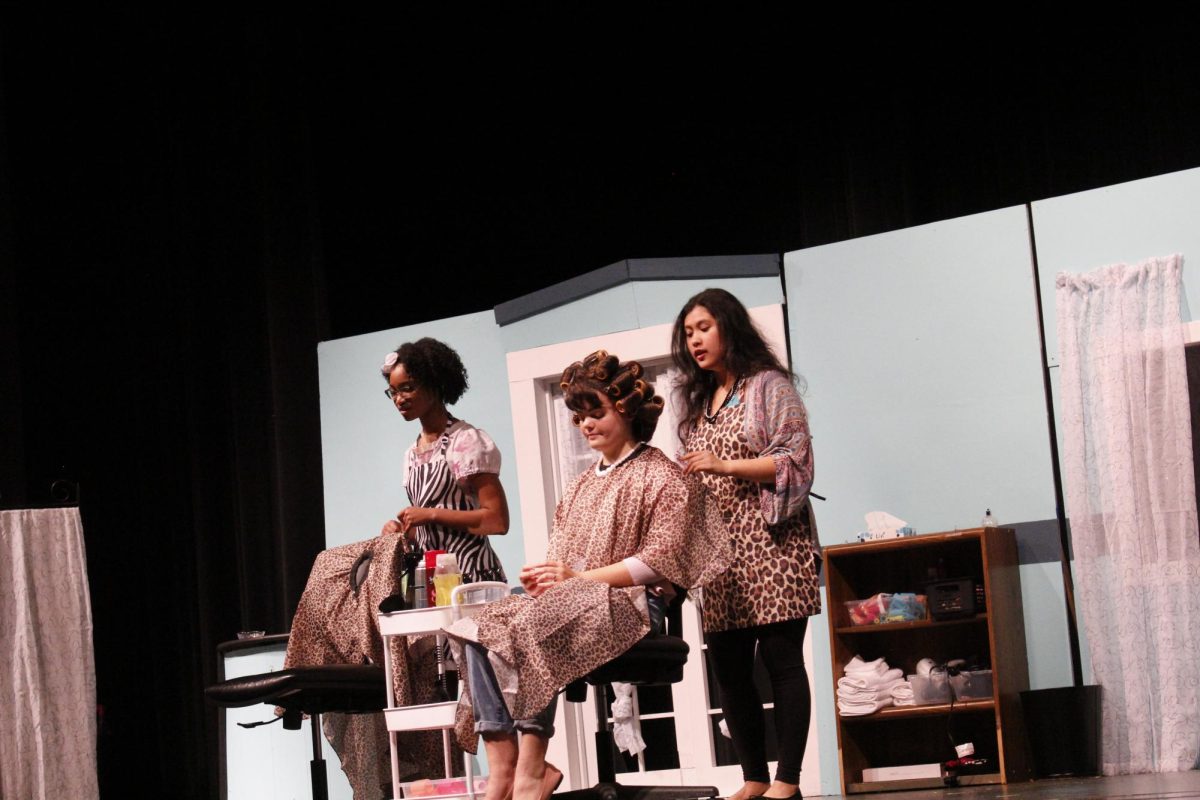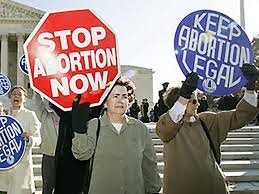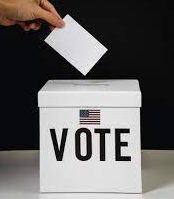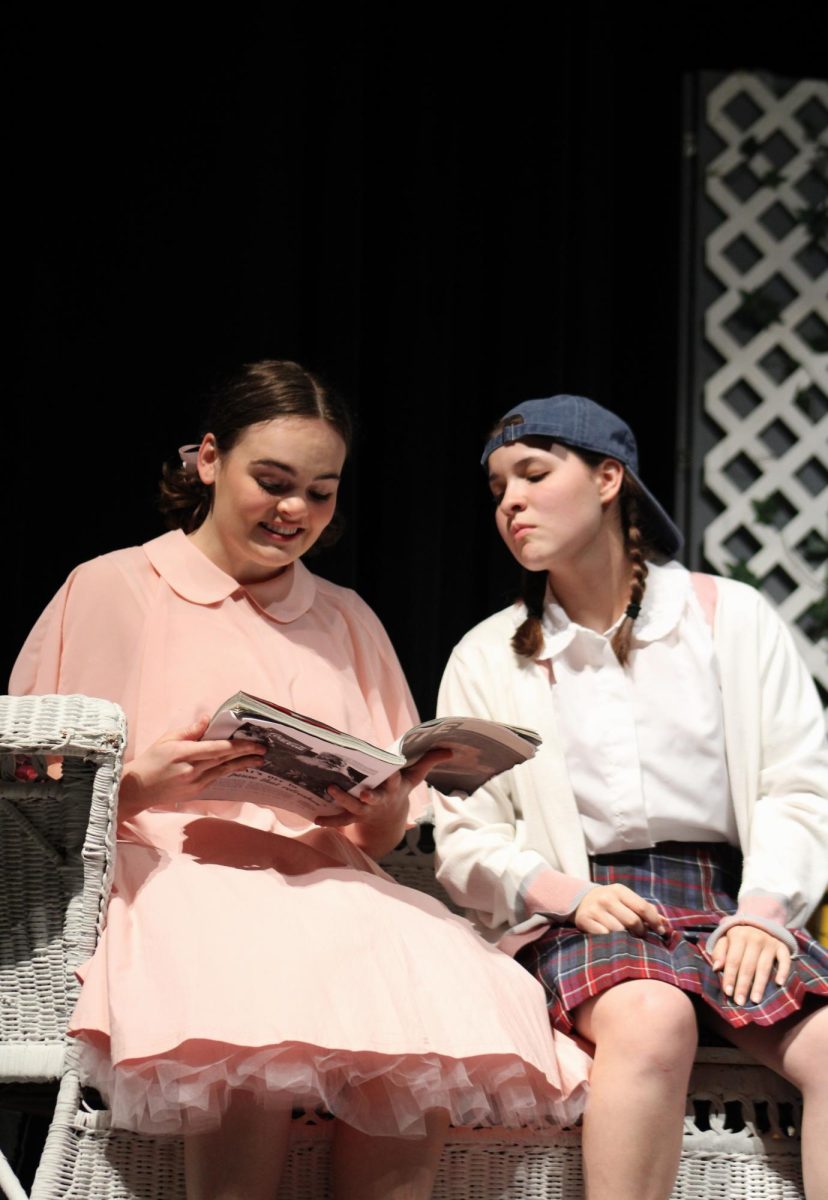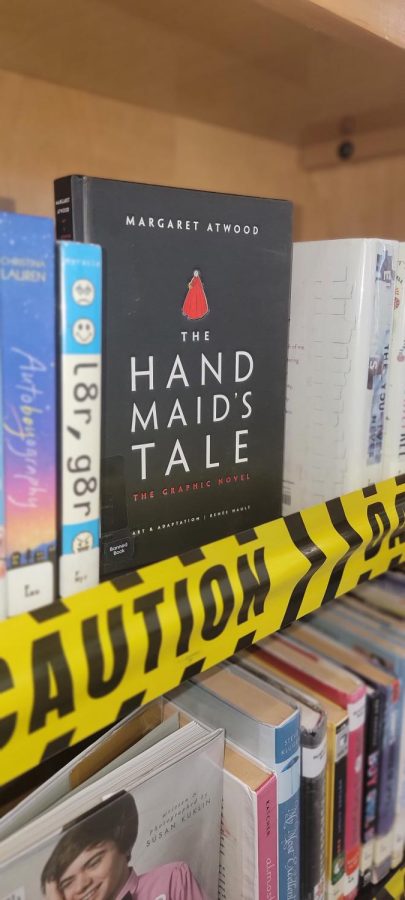Check Out or Don’t
Banned Books and Reading Freedom
Nov 4, 2022
Books are banned all the world, but here in the U.S., the banning of books occurs differently.
“Anybody can request for a book to be banned, but it goes through a whole process of deciding, ‘is this a legitimate reason to not allow anybody to read this book?’” explains Ms. Schuster, our school’s librarian.
A book is not automatically banned when someone requests it, but some believe it justifiable to try and ban books in the first place.
“You’re basically saying nobody can read this book,” expressed Schuster.
One person deeming a subject as something they don’t want to read or see in a library is because of their personal opinions and beliefs.
“But it’s your choice as far as what you choose to read. I’m not forcing anybody to read any book I have in here,” expressed Schuster.
So frankly, there’s no point in attempting to ban a book when they went through a process to be added to the library anyway.
“When I choose my books, I just make sure it’s appropriate content for a public school library,” Schuster explained.
Previously, when working at Schlather Elementary School, Schuster encountered a book with less appropriate themes concerning Barbie.
“I looked it up, and I was like, Steele and Clemens have a copy of this book. I understand, y’all are mature enough to handle that book,” said Schuster.
Instead of trying to ban the book and completely getting rid of the option to read it, she had their copies moved to the high schools.
Understanding the current state of the world, Schuster stated, “This maybe should not stay in the collection forever, but I’m not going to say nobody in the future can’t decide to read it because times are always changing.”
Throughout our country, books on relevant important topics are being banned, including children’s books, books representing the LGBTQ+ community, and books with mental health themes.
“Meanwhile, I’m over here putting LGBTQ stickers like, ‘look at all these books we have,’” Schuster progressively stated.
In some schools, the Harry Potter book collection has been banned due to some of the more serious themes.
“Harry Potter, the first book being a children’s book, they decided to house the entire series together in the children’s section. One of the things J.K. said is that the dementors, those represent depression, really. And you see that more and more as he encounters more and more throughout the books.”
People of all ages, including children, deal with mental health issues, so they should be able to read books that allow them to feel understood and less alone.
“Fantasy and magic; Our children should not be wizards,” Schuster provides another reason why the collection has been banned.
The Captain Underpants series has also been banned in certain places for promoting dangerous activities and being unclothed.
“If your parents are going to put restrictions on you, [then] that’s up to your parents to make sure you’re following those restrictions,” expressed Schuster.
There has been controversy around certain books such as Mein Kampf, the Bible, and a history book on the KKK.
“It’s controversial information, but important to know,” stated Schuster.
People need to be informed of their history, so that the past doesn’t repeat itself.
Schuster believes, “You still get to make your own opinion from the knowledge gained. Even when the teacher makes you do a report on something, you should still learn both sides of it.”
Not wanting to read something because of the presented topics is understandable but by banning it, you’re taking the option away from everyone else.
“It’s basically almost infringing on your rights as to freedom of speech and access to literacy by saying you are not allowed to have this book for others to access,” Schuster expressed, “We encourage people to have freedom to read it and to not force us to take things out so that you make sure it’s your choice. And that’s where I tell people, it’s like, ‘it’s your choice whether or not you pick up this book. And you choose what you want to read; none of us are ever going to force you to read anything.’”
It is up to the individual library on what books they’re willing to house but no book should be entirely banned from all of them. If you don’t agree with the topics or themes in a book, just don’t check it out.
Schuster expresses, “If that’s your personal choice, do not put it on the rest of the school that wishes to read it.
